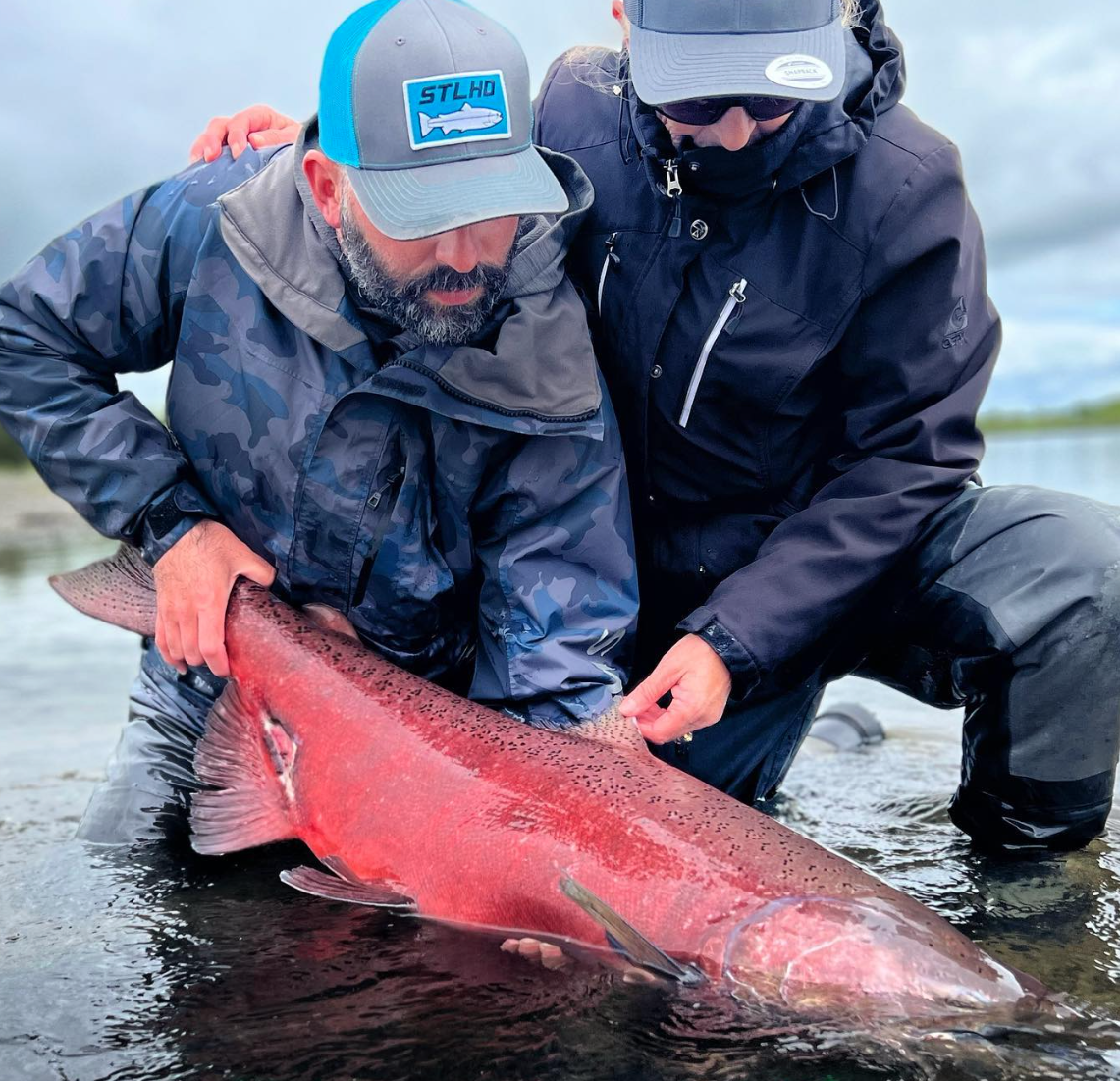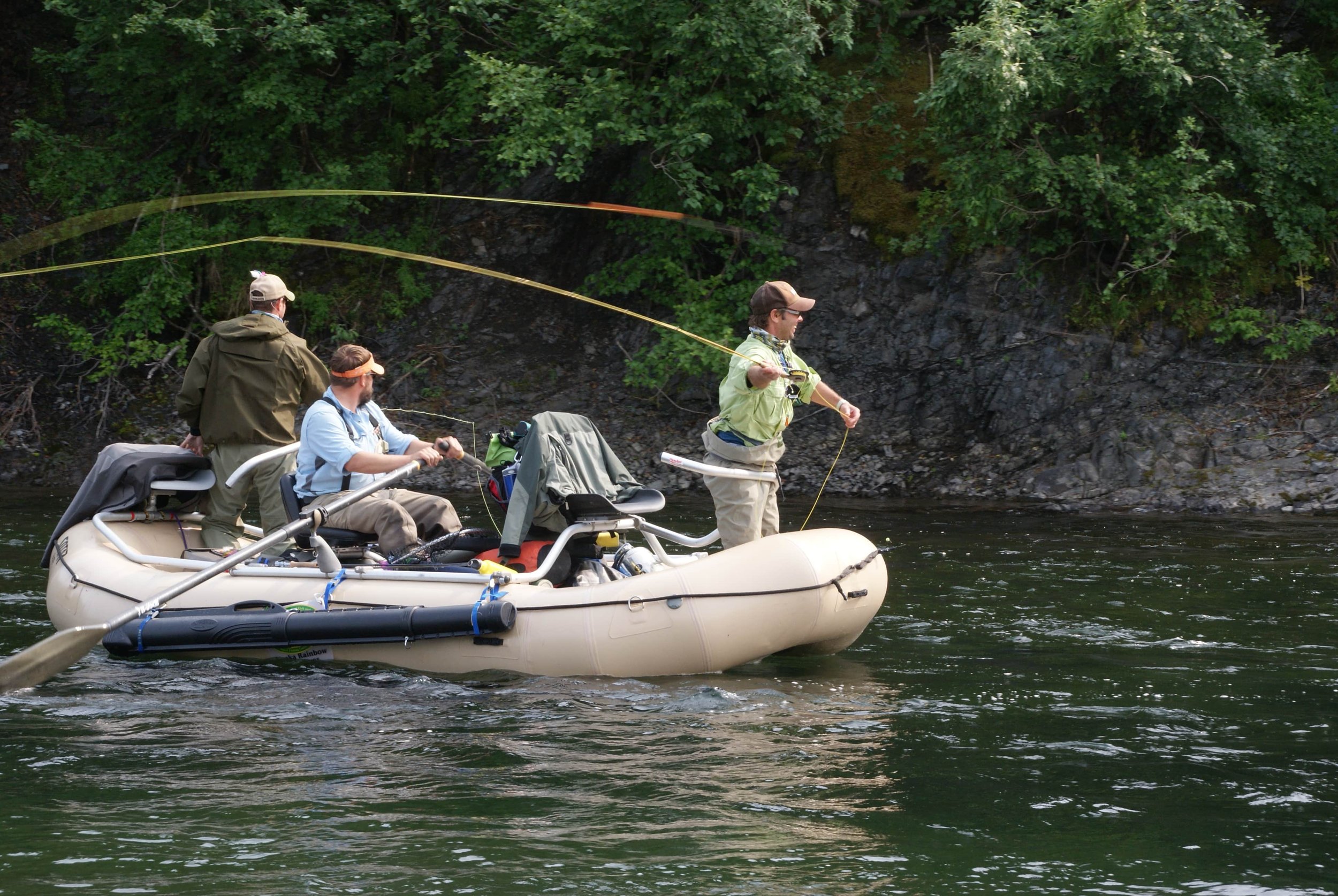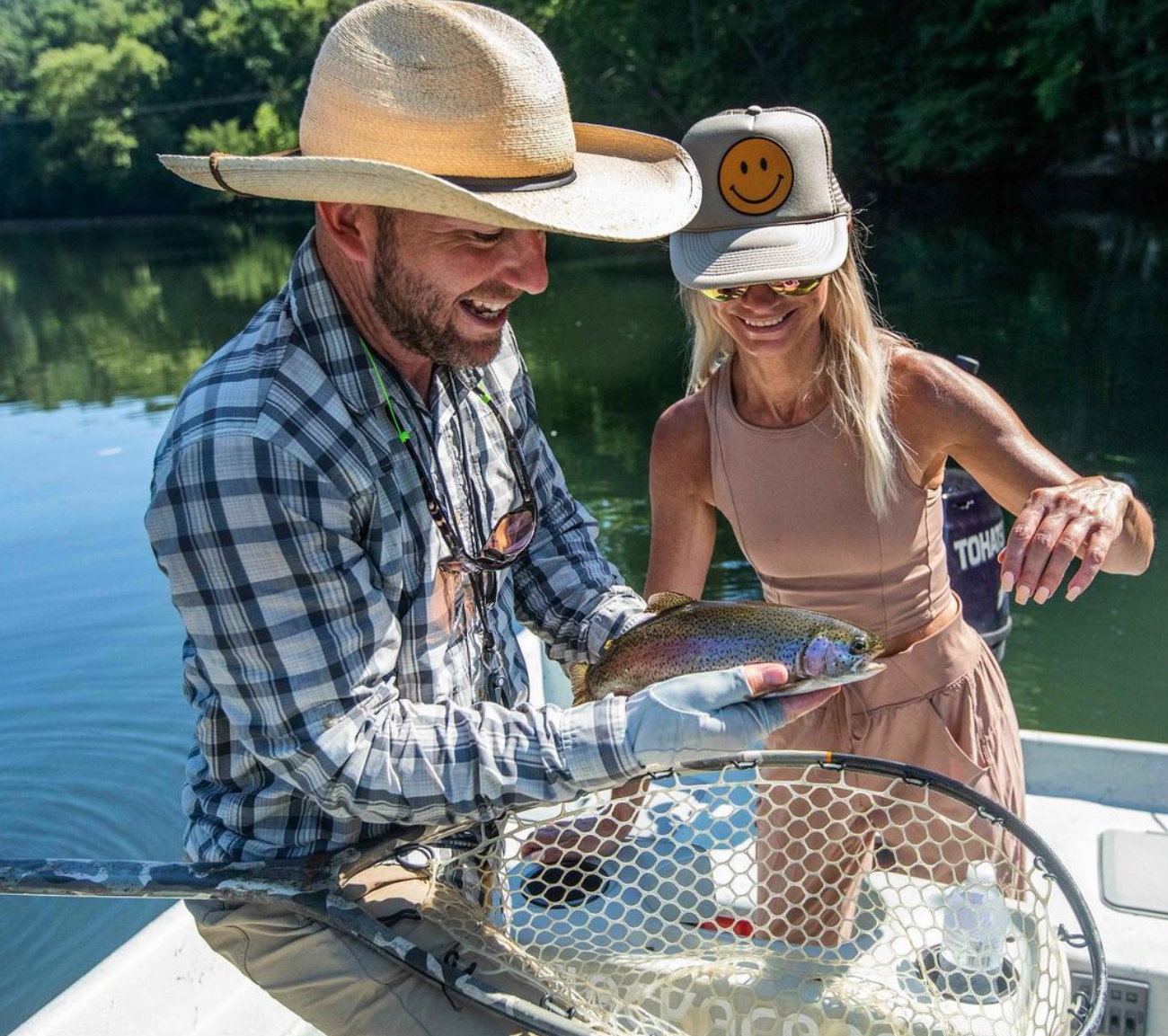What a Guide Is…
Guides wear so many hats, and approach the job from so many different angles, that it would be impossible to fully describe “what a guide is.” The role is different for every Guide, and can change from client to client. We all know the stereotypes: bearded, Toyota Tacoma with a rod vault of some kind, raccoon eyes, Chacos indefinitely; and some of them are even usually true, but guides are more complicated than that.
The service that they provide can end with the most memorable moments in their clients lives, their expertise can be so textbook accurate that in any other context, you would mistake them for a scientist of some kind. And the way that guides interact with clients—from the football coach to the therapist— is so varied and plays so many different roles in clients’ lives, that it’s worth looking at, laughing at, and appreciating.
Memory-Maker
One quick swipe of the thumb on Instagram will reveal that people really care about the memories they make on the water, and guides are the facilitators of those memories for their clients. That is an easy thing to say and a very hard thing to do. Every guide out there has had the gut-wrenching moment when it feels as if things won’t work out, and sometimes they don’t. We’ve all had trips get rained out, winded out, hurricaned out, or ruined by a kayak hatch. But good guides get it done, more often than not, and that comes with a lot of pressure sometimes.
Clients depend on the days they book with guides to be THE chance to get a tarpon, or their ONE opportunity to get away from their screaming toddlers this year. They stake their whole vacation to Tulum on a permit, or want the perfect angle with the perfect fish for their social profiles. Great guides handle the pressure with grace and give their clients sweet memories, or at least a solid day outside, regardless of fish-catching success and that is no easy task. Thank a guide for one of your best fishing memories when you get a chance.
Scientist
This week someone asked me “fishing guides are mostly pretty blue-collar, right?” and I hesitated because the answer is more nuanced than it may seem. Most guides would agree that working outside all day and using your back and shoulders to pole a skiff or row a boat for a good portion of that day is similar in some ways to many blue-collar jobs, but I’ve met guides with Ph.Ds, we have guides on Guide Book with the kind of scientific understanding about tides or bugs or the way a fly-rod bends that they could write an article for Scientific American about it.
There is nothing like hearing a big dude in a faded Winston hat talk about Ephemera Guttulata as the first Green Drakes of the season start hatching, being introduced to all the birds in the eagle stretch as if they are the guide’s oldest friends, or beginning to understand just how academic reading water actually is because your guide starts waxing about ph levels and oxygen content.
I didn’t really answer the guy who asked me about what color guides’ collars are…I guess I should have just said, “they wear buffs at work.”
Coach
The first time I caught a permit, it was because my guide scared me into performing at the level it required. I made a short cast, he made a disapproving sound, I made a cast too far left, he said “no good,” slightly louder, I made a third cast that I would argue got caught by the wind and he screamed “cast better or don’t catch fish.” Then I did and the permit ate. I’m incredibly thankful that guide wasn’t sweet about it, and although I do appreciate encouraging words and a laid back demeanor, sometimes somehting else is required. If you ever played organized sports, or watched a sports movie, you know that coaches are special…they encourage, they protect, they discipline, they intimidate, but at the end of the season, if you’ve improved, you’re grateful.
We’ve all heard crazy stories about guides screaming at clients for missing fish, maybe you’ve even been screamed at, and there are certainly guides who need to reign that in, but its worth saying that guides spend their precious time with us. They share their precious resource with us. We pay them to make us better anglers and coach us as we fish. All that to say, sometimes I need a kick in the pants so that I can make the most of the opportunity and its probably true that most anglers could use one now and then. Next time a guide yells at you for trout setting a bull redfish, try saying “thank you” and see what happens…its usually because they want you to catch the fish.
Boat Chauffeur
As a day-in-day-out guide, you’ll eventually fish a client who brings their own rod, their own flies, their own lunch, and their own goals for the day. I call this downgrade “the boat chauffeur” and it can cause the best of times and the worst of times.
On one hand, the poling platform can start to feel like the front of the limousine with the middle window closed which is a lonely seat indeed, but there is a freedom to it as well. After all, if it’s not your rods, your advice, or your experience a client is relying upon because today you’re just the driver, then it also isn’t your fault if they wrap a fly line around their ankle, lose the tarpon, and fall in the water. But the best guides take pride in ALL of their work whether that’s the flies they tied specifically for this part of the Marsh or even this specific moon phase, or in my case, their chicken Caesar salad lunch. It can be a bummer not to get the opportunity to work a client through the whole program, because guides know what works.
If you’re the client who only needs a guide to pole you around or backrow you into that specific eddy so you can focus on the fishing, at least tell them what it is that motivates you to be that way and give them a stellar tip. If you’re the guide dealing with a client who sees you as a boat chauffeur, enjoy the respite it will give your nerves and your fly rods and don’t take it personally…the fish will escape your particular ninja skills today.
Therapist
If you’re a guide, repeat after me:
Fishing is fun.
Put it on a sticker in your boat, tattoo it on your forearm, stamp it at the bottom of your business cards, and yell it out every 30 minutes or so, because invariably some of your clients need to hear it.
Clients will have marital spats on your boat, they’ll take devastating calls from someone at work on your boat, they’ll get fired up about a mistake or a hope that goes unfulfilled on your boat, they might tell you things they won’t tell anyone else because a 16 foot boat is an intimate place, and they might become your friends. More often than not, a listening ear and some time on the water is exactly what most people need, and it’s exactly what a good guide has to provide, so it’s no wonder these moments happen to them so often.
If you’re a client who has ever appreciated the advice, the distraction, the empowerment, or the counseling you’ve gotten from your time with a guide, recommend them to a friend and send them a thank you note because they did it for a lot less than the going rate for 8 hours with a therapist. Plus, the fishing was probably fun.
Pioneer
We live in a culture of instant gratification, cushy couches, air conditioning, and Amazon. A lot of us have lost the drive to go find what we’re looking for, forget about introducing it to others. To face danger and weather and hard work to achieve a goal is a thing of the past for most of us, but it’s an everyday reality for good guides. There’s this misconception that guides become guides just because they want to be fishing every day or just because fishing is all their good at, but that’s so narrow that it should be disregarded.
Of course guides love fishing and being on the water everyday, but they guide because they know that there are special moments that can be had in the pursuit of fish that cannot be had anywhere else.
They guide because they have the courage to put their bodies, equipment, and reputations on the line to give other people the gift they were given. They guide because working hard in pursuit of a goal as valuable as a big Tarpon or a beautiful brook trout, is a goal worth trying to achieve. Guides are pioneers, as innovative as the leaders of any field their clients may be working in, and that’s exactly how we think of them at Guide Book. If you’re a guide and this resonates, reach out, we’d love to help you along whatever path you’re on. If you’re a client and this is how you feel too, show the guides some love.







